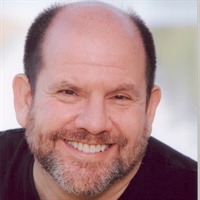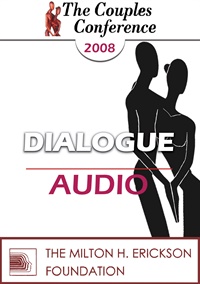CC08 Dialogue 03 - Key Concepts from Neuroscience That Influence Your Couples Work - Louis Cozolino, PhD; Peter Pearson, PhD; Stan Tatkin, PsyD
- Average Rating:
- Not yet rated
- Topic Areas:
- Dialogues | Couples Therapy | Neuroscience | Neurobiology
- Categories:
- Couples Conference | Couples Conference 2008 | Pioneers in Couples and Family Therapy
- Faculty:
- Louis Cozolino, PhD | Peter Pearson, PhD | Stan Tatkin, PsyD, MFT
- Duration:
- 57:12
- Format:
- Audio Only
- Original Program Date:
- Apr 27, 2008
- License:
- Never Expires.
Description
Description: This panel explores how neuroscience informs couples therapy, including emotional reactivity, stress, and attachment. Presenters discuss using analogies to help clients understand their brain responses and emphasize blending neuroscience with empathy and connection in clinical practice.
Educational Objectives:
- To describe the key concepts of Neuroscience.
*Sessions may be edited for content and to preserve confidentiality*
Credits
Handouts
| Ericksonian Learning Snapshot (256.1 KB) | 2 Pages | Available after Purchase |
Faculty

Louis Cozolino, PhD Related Seminars and Products
Dr. Cozolino is a psychotherapist, Professor of Psychology at Pepperdine University, and Adjunct Professor at the University of California, Los Angeles. He is the author of The Neuroscience of Psychotherapy: The Making of a Therapist and The Neuroscience of Human Relationships. He is also the author and co-author of many articles and book chapters, including “Sensation, Perception and Cognition” (with Daniel Siegel) in The Comprehensive Textbook of Psychiatry.
Dr. Cozolino has diverse clinical and research interests and holds degrees in philosophy and theology, in addition to his doctoral in clinical psychology. He has conducted empirical research in schizophrenia, child abuse, and the long-term impact of stress. Recently, his interests have turned to a synthesis of the biobehavioral sciences and psychotherapy. He maintains a clinical and consulting practice in Los Angeles.
Learn more about Dr. Cozolino at https://www.drloucozolino.com/

Peter Pearson, PhD Related Seminars and Products
Peter Pearson, Ph.D., has specialized in helping couples transform their relationships. He and his wife, Dr. Ellyn Bader are pioneers in the field of couples therapy, creating The Developmental Model of Couples Therapy and founding The Couples Institute long before couples therapy was recognized as a specialty. As a therapist, workshop leader, author, and speaker, Pete is dedicated to helping couples create extraordinary relationships. He and his wife have been featured on over 50 radio and television programs including “The Today Show” and “CBS Early Morning News.”

Stan Tatkin, PsyD, MFT Related Seminars and Products
Stan Tatkin, PsyD, MFT, is a clinician, researcher, teacher, and developer of A Psychobiological Approach to Couple Therapy (PACT®). He has a clinical practice in Calabasas, CA, where he has specialized for the last 15 years in working with couples and individuals who wish to be in relationships. He and his wife, Tracey Boldemann-Tatkin, developed the PACT Institute for the purpose of training other psychotherapists to use this method in their clinical practice.


